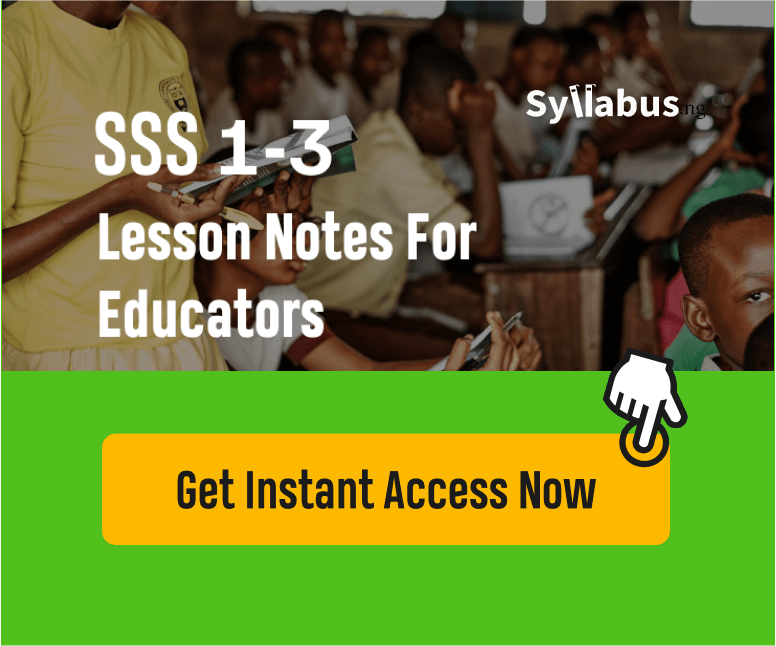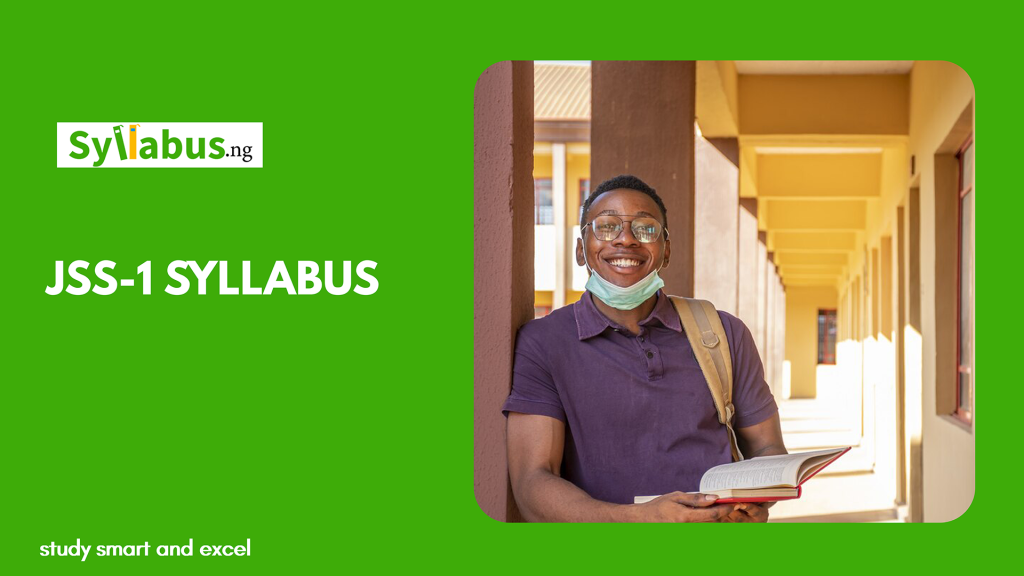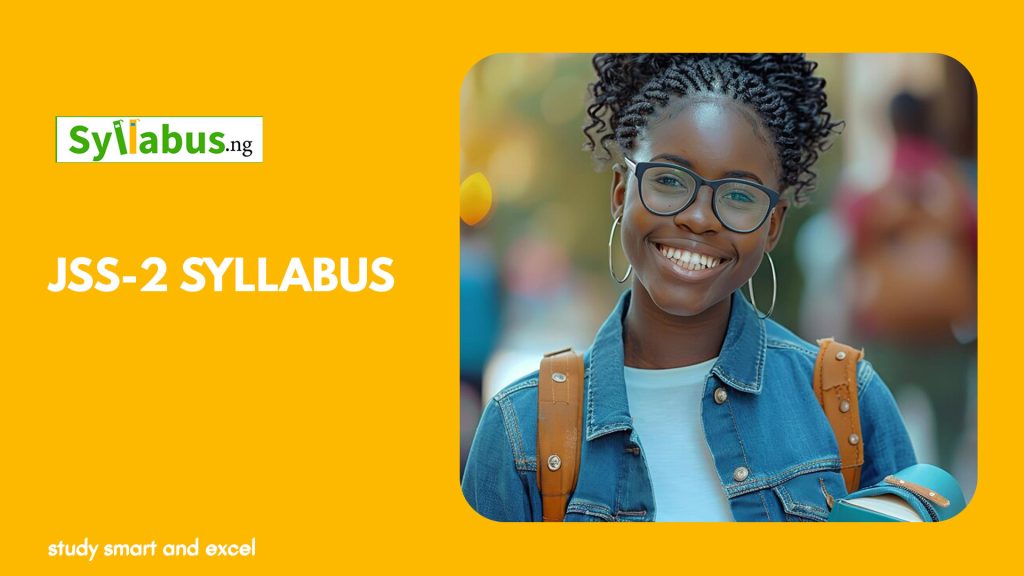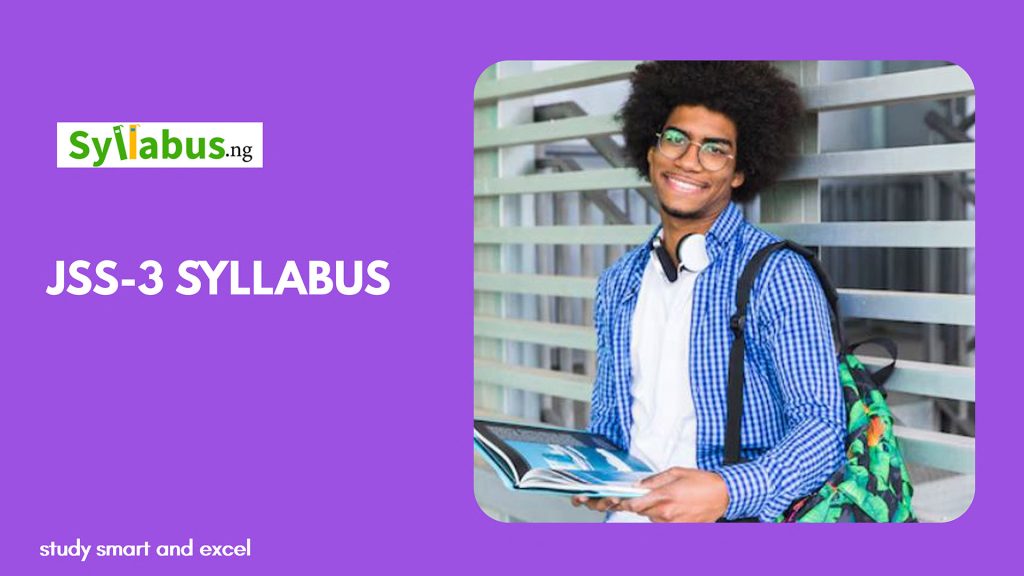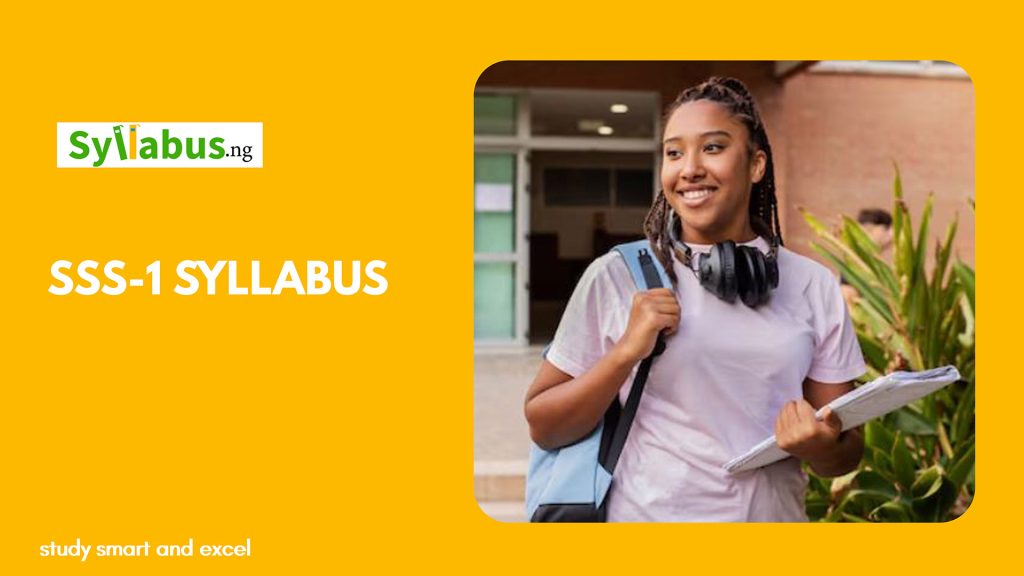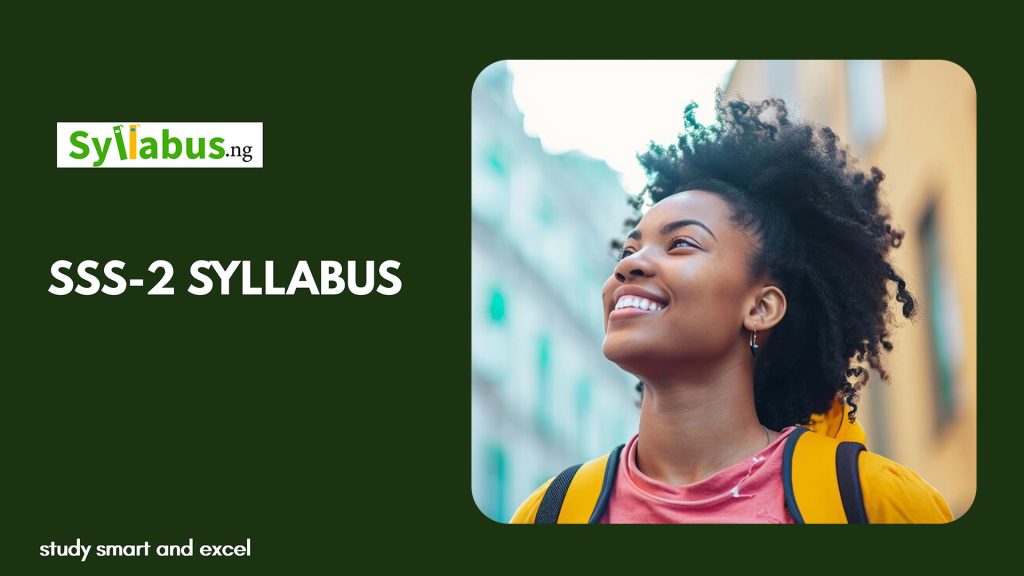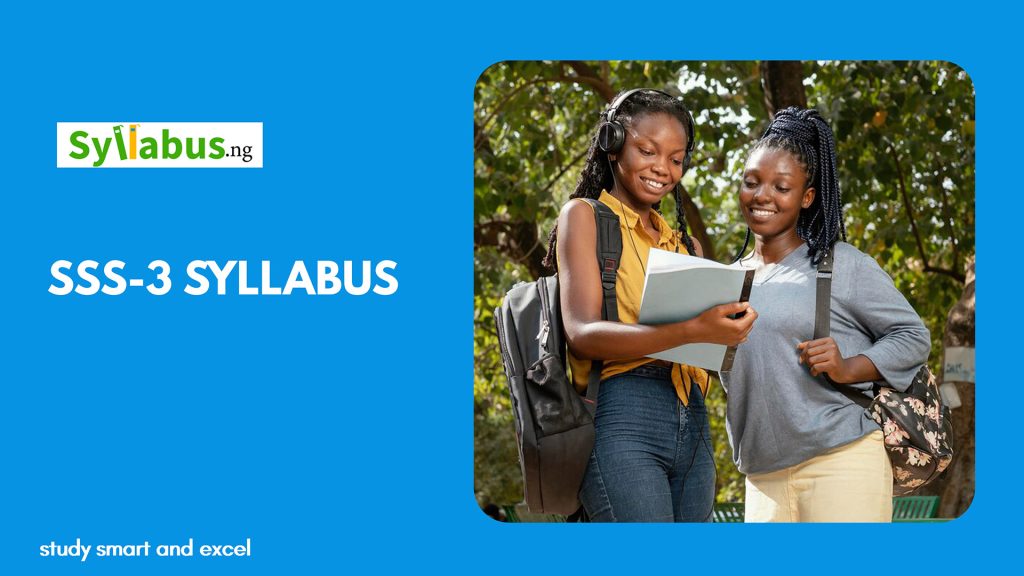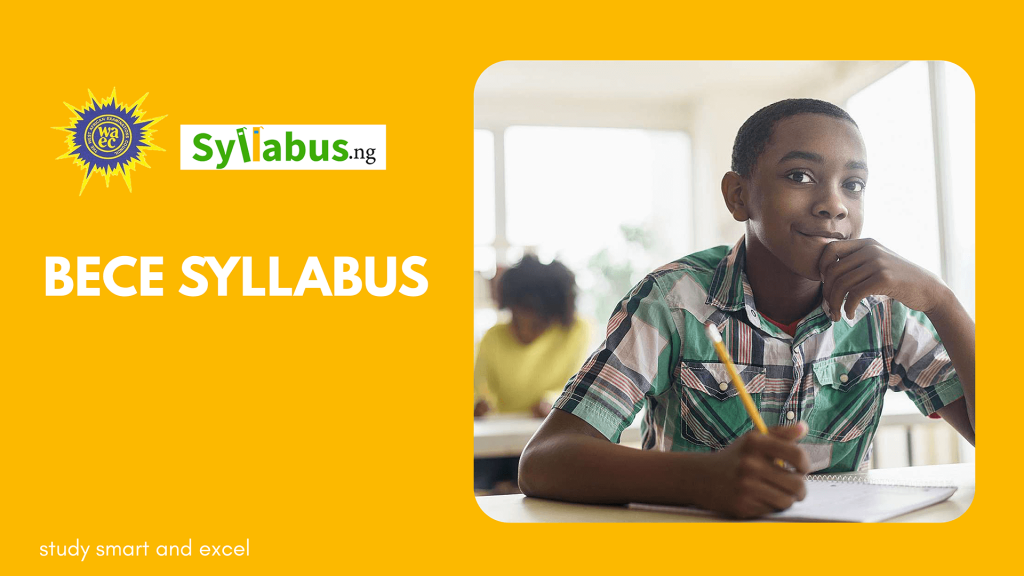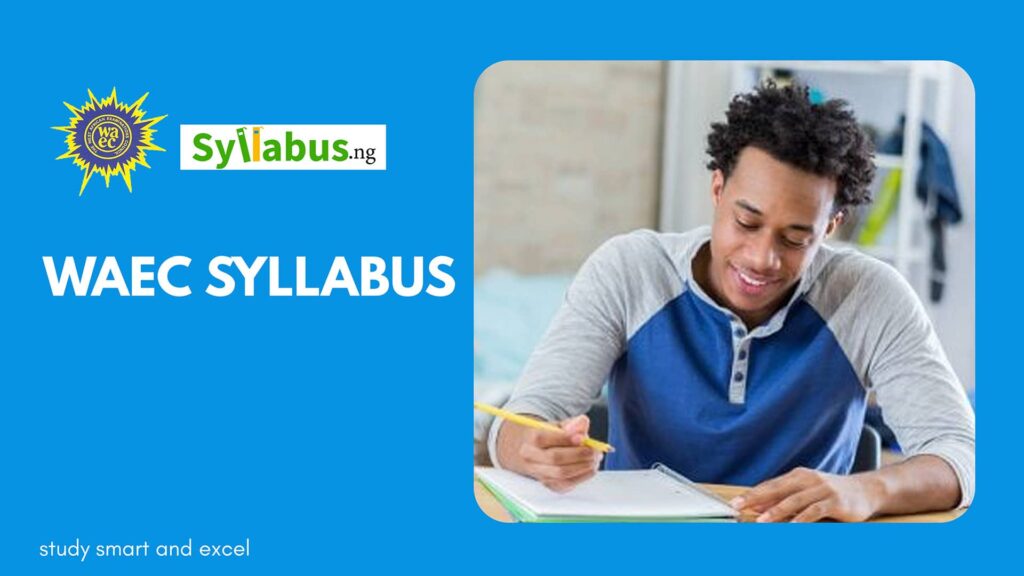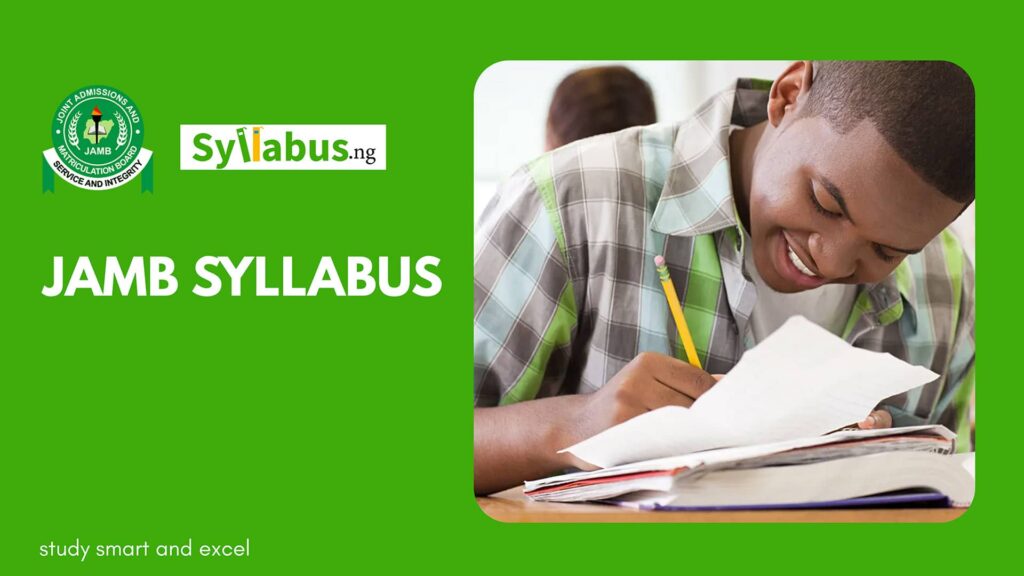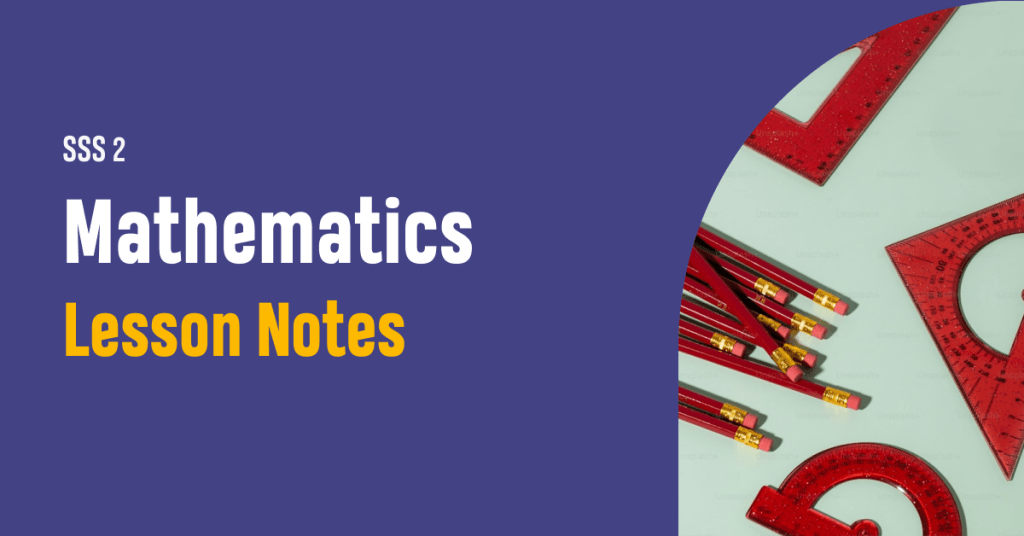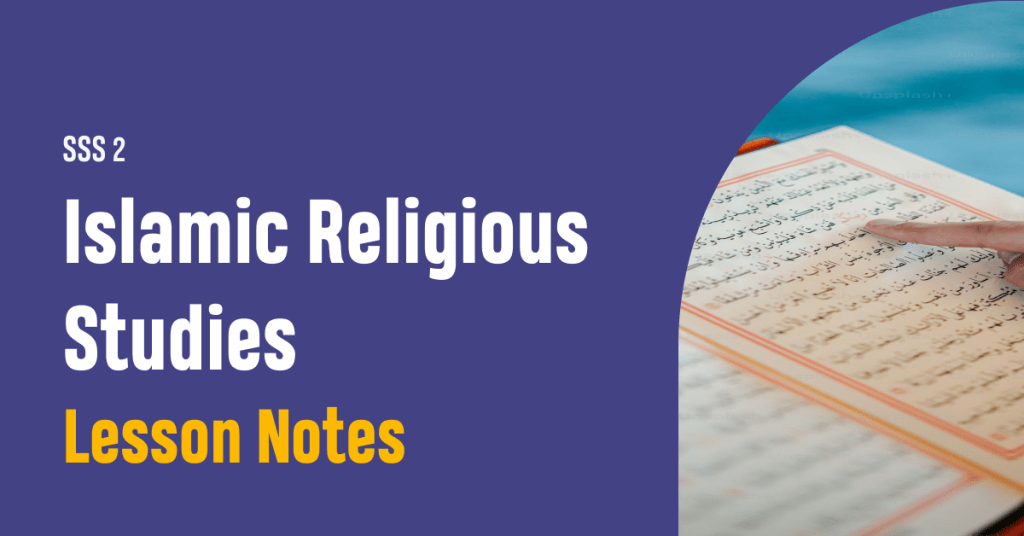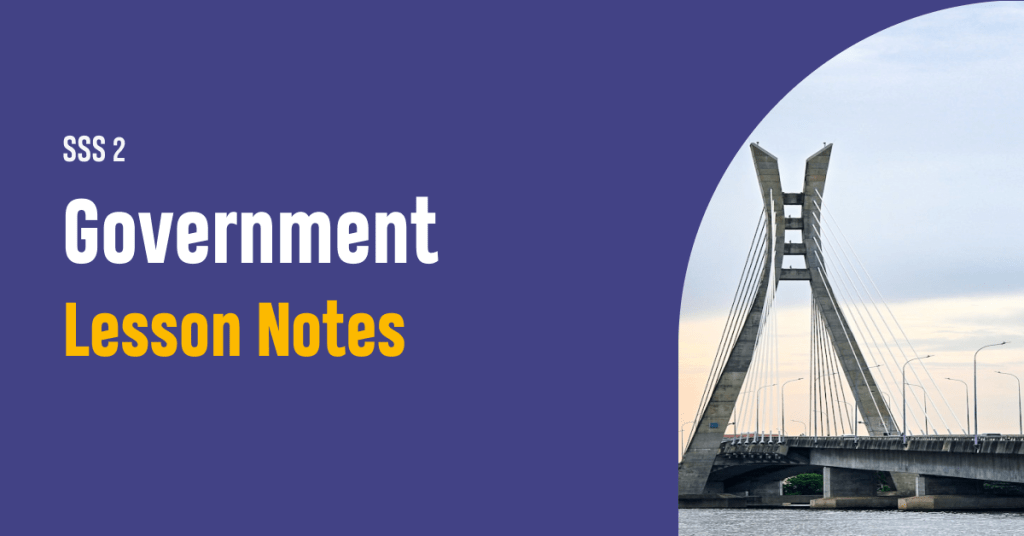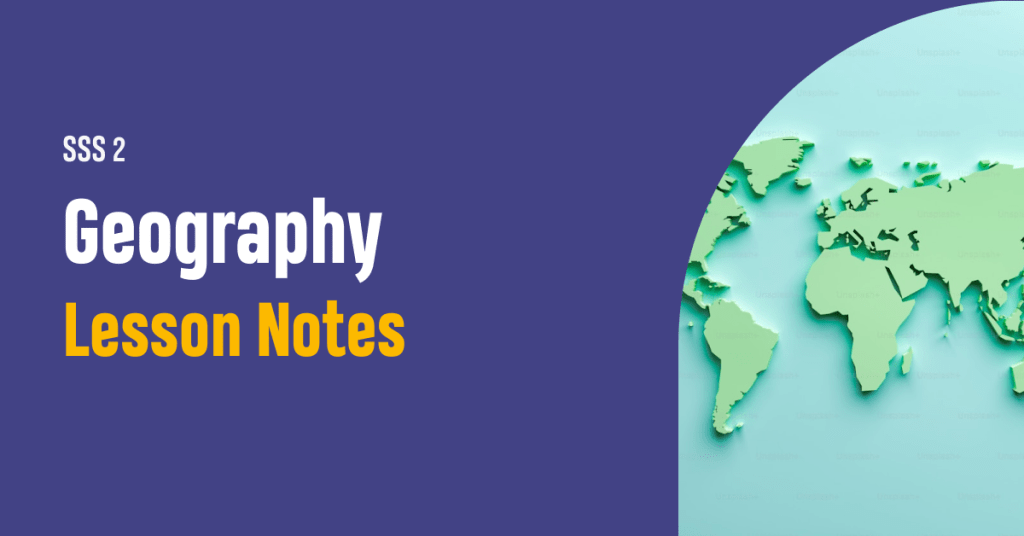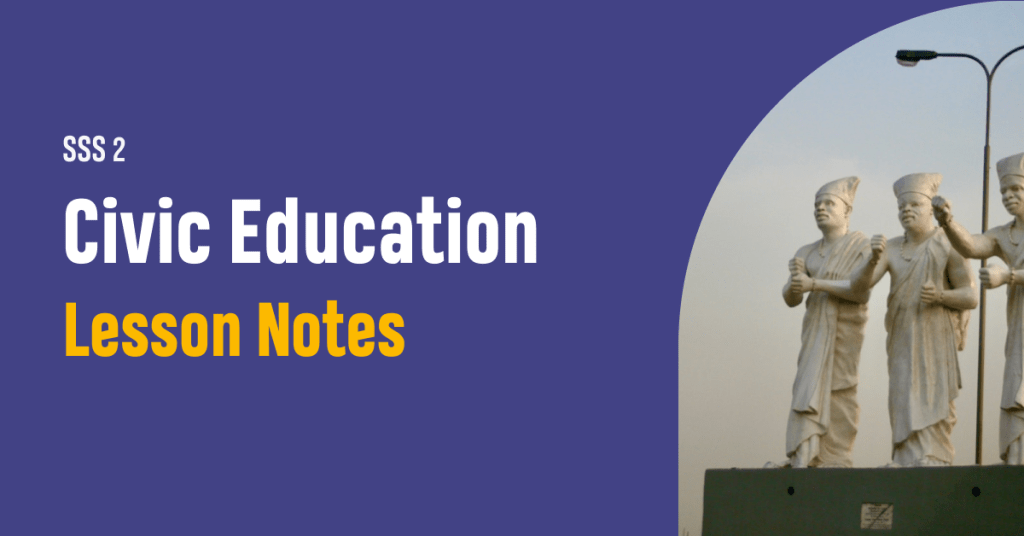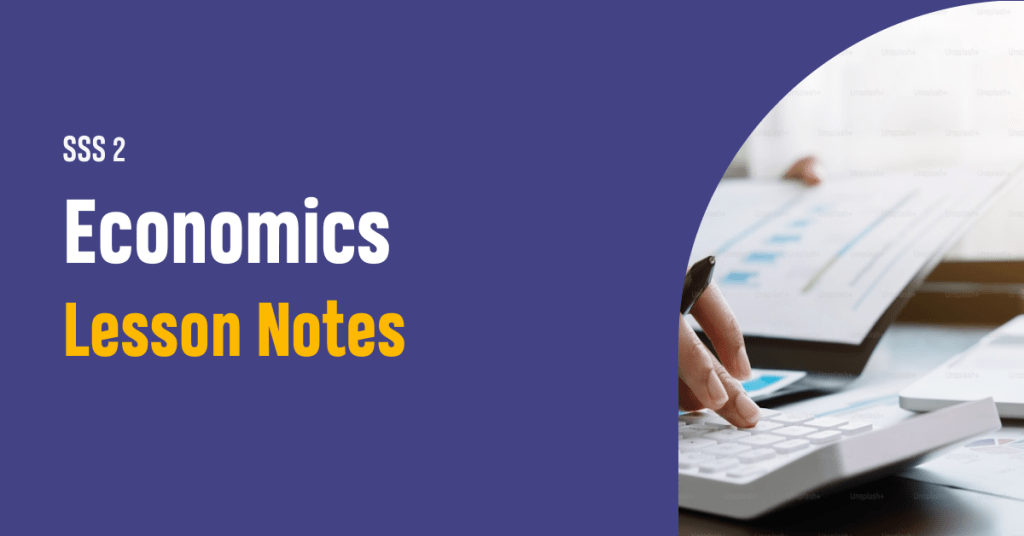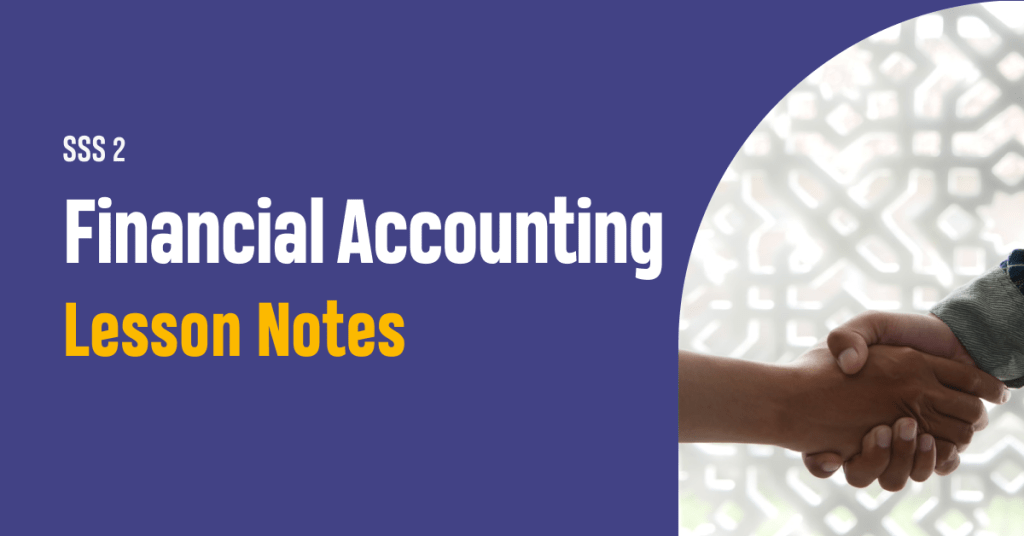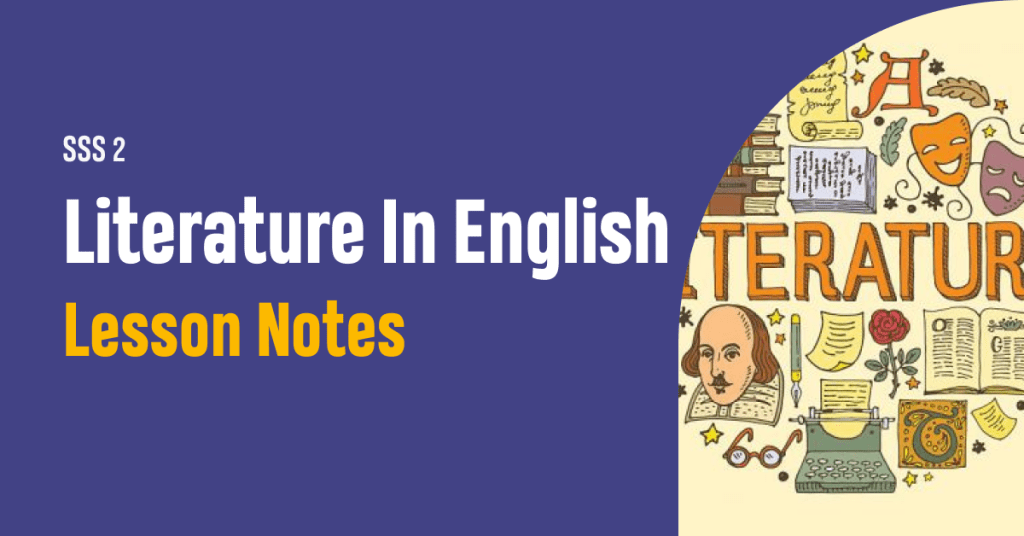SS2 Islamics Religious Studies (IRS) Scheme of Work
Download the Senior Secondary School 2 (SS2) Unified Scheme of Work for Islamic Studies (IRS) to serve as a guide for educators

Home » SSS2 Scheme of Work » SSS2 Islamic Religious Studies (IRS) Scheme of Work
Home » SSS2 Scheme of Work » SSS2 Islamic Religious Studies (IRS) Scheme of WorkAbout SS2 IRS Scheme of Work
Islamic Religious Studies is important in providing students with a thorough understanding of Islamic teachings, history, and cultural significance. For SS1 students, this subject introduces them to the essential principles of Islam and fosters a deeper appreciation and practice of their faith.
The significance of Islamic Religious Studies goes beyond academic learning. It plays a crucial role in shaping students’ moral values, ethical behavior, and sense of community. By exploring the life of Prophet Muhammad, the Quran, Hadith, and the rich tradition of Islamic scholarship, students gain insights into their religion’s spiritual and practical dimensions. This knowledge promotes personal growth and holiness, while also preparing students to contribute positively to society by upholding values like justice, compassion, and integrity.
In essence, Islamic Religious Studies in SS2 is crucial for developing well-rounded individuals who are knowledgeable about their faith, ethical in their actions, and committed to fostering a harmonious society. This developmental study can be achieved using the Lagos state unified scheme of work for SSS2, and it equally sets the stage for lifelong learning and spiritual growth, ensuring that students become responsible and informed members of the Muslim community and the wider world.
Assessment Guide
In senior secondary school 2, students are assessed in Islamic Religious Studies based on the school’s prerogative. However, typically, they are evaluated through tests or quizzes (Continuous Assessment Tests), and end-of-term exams.
Grading follows a scale from A to F, with A representing excellent performance, typically scoring around 70% or 80%, and F indicating failure, usually below 50% or 45%.
Download SSS2 Islamic Religious Studies (IRS) Scheme of Work

Know what’s expected of you as an educator
Download the Lagos State Unified Scheme of Work for Senior Secondary School Two (SSS2) Islamic Religious Studies (IRS).
SS2 First Term Scheme of Work for IRS
| LAGOS STATE MINISTRY OF EDUCATION UNIFIED SCHEMES OF WORK FOR SENIOR SECONDARY SCHOOLS | ||
| Islamic Religious Studies Scheme of Work for Senior Secondary Schools 2 | ||
| CLASS | S.S.S.2 | |
| SUBJECT | Islamic Religious Studies | |
| TERM | First Term | |
| WEEK | TOPICS | Learning Objectives |
| 1 | Welcome Test & Al Qur’an i. The study of Surah Al Qa’raih (Q101) ii. The study of Suratul- Takathur(Q102) | By the end of the lesson, students should be able to: 1. translate the Sirah into English 2. interpret the theme and state the subject matter of the Sirah of the surah 3. evaluate the lessons contained therein |
| 2 | Sawn(Fasting) | By the end of the lesson, students should be able to: 1. describe Dawn (Fasting) and examine the kings 2. justify those exempted from fasting and reasons and examine the things that vilaite fast 3. analyze the benefits/significance of sawn -spiritual, social and moral |
| 3 | Features of political administration of the Prophet (S.A.W) | By the end of the lesson, students should be able to: 1. describe the political administration of the prophet(SAW) 2. appease the leadership qualities of the prophet- equality, justice and fair play 3. evaluate the features of the political administration of the four rightly guided caliph i.e leadership styles and conflict resolution |
| 4 | Hadith: The study of Hadith i. 10th ii. 11th iii. 12th of An nawawi’s collection | By the end of the lesson, students should be able to: 1. translate Ahadith to English 2. discuss the hadith to determine its theme and subject matter 3. evaluate the lessons therein |
| 5 | Moral teachings of Islam i. Bribery ii. Corruption iii. Cybercrime iv. Stealing v. Vandalism vi. Embezzlement vii. Fraud | By the end of the lesson, students should be able to: 1. define bribery. corruption, cybercrime, stealing, vandalism, embezzlement and fraud 2. outline the effects of these social vices in the society 3. discuss the islamic teachings on these vices (Q2:188, Q81:1-5) |
| 6 | Hajj and Umrah | By the end of the lesson, students should be able to: 1. define hajj and outline the prerequisite (conditions) for the performance of hajj 2. relate the types and rites of hajj and describe Al-Mawaqit/station of ihram 3.compare and contrast hajj and umrah and analyze the significance of hajj |
| 7 | Mid Term Test/Open Day/Mid Term Holiday | |
| 8 | Features of islamic economic system with special emphasis on the practice of the Prophet and the Khulaffar Rashidun | By the end of the lesson, students should be able to: 1. discuss the practice of the prophet (SAW) on islamic economic system and itemise its feature 2. examine the practice of Khulaffar-Rashidun islamic economic system 3. compare and contrast the islamic economic system with other system of economics with special reference to halal and haram, Ribah, Usury, Tattif, Zakah and Sadaqah, Baytul Mayl, . |
| 9 | Al Qur’an i.The study of Suratul Asr Q 103 ii. The study of Surah Al Humazah (Q 104) | By the end of the lesson, students should be able to: 1. translate the surah into English 2. interpret the theme and state the subject matter of the surah 3. evaluate the lessons contained therein |
| 10 | Hadith The study of the Hadith i. 13th ii. and 14th of An Nawawi’s collection | By the end of the lesson, students should be able to: 1. translate Ahadith to English 2. discuss the hadith to determine its theme and subject matter 3. evaluate the lessons therein |
| 11 | Jihad | By the end of the lesson, students should be able to: 1. discuss the concept of jihad 2. consider the various kind of jihad and manners of executing each of them 3. evaluate the greatest kind of jihad i.e Jihadun- Nafs and its application |
| 12 | Revision | |
| 13 | Examination | |
SS2 Second Term Scheme of Work for Visual Arts
| CLASS | S.S.S 2 | |
| SUBJECT | Islamic Religious Studies | |
| TERM | Second Term | |
| WEEK | TOPICS | Learning Objectives |
| 1 | WELCOME TEST/Study of Qur’an SüratuI-Falaq (Q1133) and Süratun-Nås (Q114) | By the end of the lesson students should be able to 1. translate the Sirah English 2. determine the themes of the chapters and tell why they are Mu’awwidhatayn 3. evaluate the lessons therein |
| 2 | Hadith i. the study of Hadith 34th and 35th ii. 38th and 41st of An-Nawawi’s collection | By the end of the lesson, students should be able to 1. recall the translation of Hadith 34th, 35th, 38th and 41st of AnNawåwis Collections in English. 2. examine the subject matters of the Ahadith 3. infer the lessons/significance of the Ahadith |
| 3 | The contribution of some selected Muslim sages to the world civilization i. Ibn Rushd ii. Ibn Khaldun | By the end of the lesson, students should be able to 1. narrate briefly the life of Ibn Rushd and Ibn Khaldun 2. consider their contributions to the field of science/knowledge 3. determine their relevance to modern science and western knowledge |
| 4 | Talaq(Divorce) i. Meaning ii. Types(Rajin and Ba’in) iii. Kind of marriage cessation in Islam i.e Talaq, khul, Faskh and Mubarah iv. and other condemned types of talaq | By the end of the lesson, students should be able to 1. describe the meaning and the position of islam on talaq 2. relate the types, kind and other condemned types of talaq 3. examine the purpose of idah and enumerate the various kind of idah with their duration 4. critique the curiosity of children after divorce and the implication of Talaq |
| 5 | Mirath:Inheritance i. Mirath ii. wasiyyah iii. Significance of inheritance in Islam e.g economic empowerment of the widow(s), widower, parent(s), sibling(s), etc | By the end of the lesson, students should be able to 1. explain the term mirath and wasiyah 2. outline the general principle of mirath and justify the wisdom in giving sons greater shares than daughters 3. infer the implications/significance of inheritance |
| 6 | Project the moral lessons from Qur.an and Hadith | By the end of the lesson, students should be able to 1. prepare and submit a write-up on the islamic teachings of the following virtues a. enjoying righteousness and forbidding evil b. concept of leadership and followership c. justice d. religious tolerance and peaceful coexistence 2. prepare and submit a write-up on the islamic teachings of the following virtues a. bribery, corruption and stealing b. cigarette smoking and drug addiction c. gambling and alcoholism d. arrogance and extravagance e. adultery and fornication and its harbingers (porgraphy and obscenity) f. miserliness and greed |
| 7 | Mid Term Test/Open Day/ Mid Term Holiday | |
| 8 | Revision and Examination | |
SS2 Third Term Scheme of Work for IRS
Recommended IRS Textbooks for Senior Secondary School 2
The recommended Islamic Religious Studies textbooks for SSS2 include but are not limited to the following:
Islamic Studies for Senior Secondary Schools Book 1 -3 by Aisha B. Lemu UP Plc
Exam Focus on Islamic Studies (for SS3 students only) JAMB series (SS3)
SSS2 Scheme of Work for All Subjects
Trade Subjects
Download SSS2 Islamic Religious Studies (IRS) Scheme of Work

Know what’s expected of you as an educator
Download the Lagos State Unified Scheme of Work for Senior Secondary School Two (SSS2) Islamic Religious Studies (IRS).


